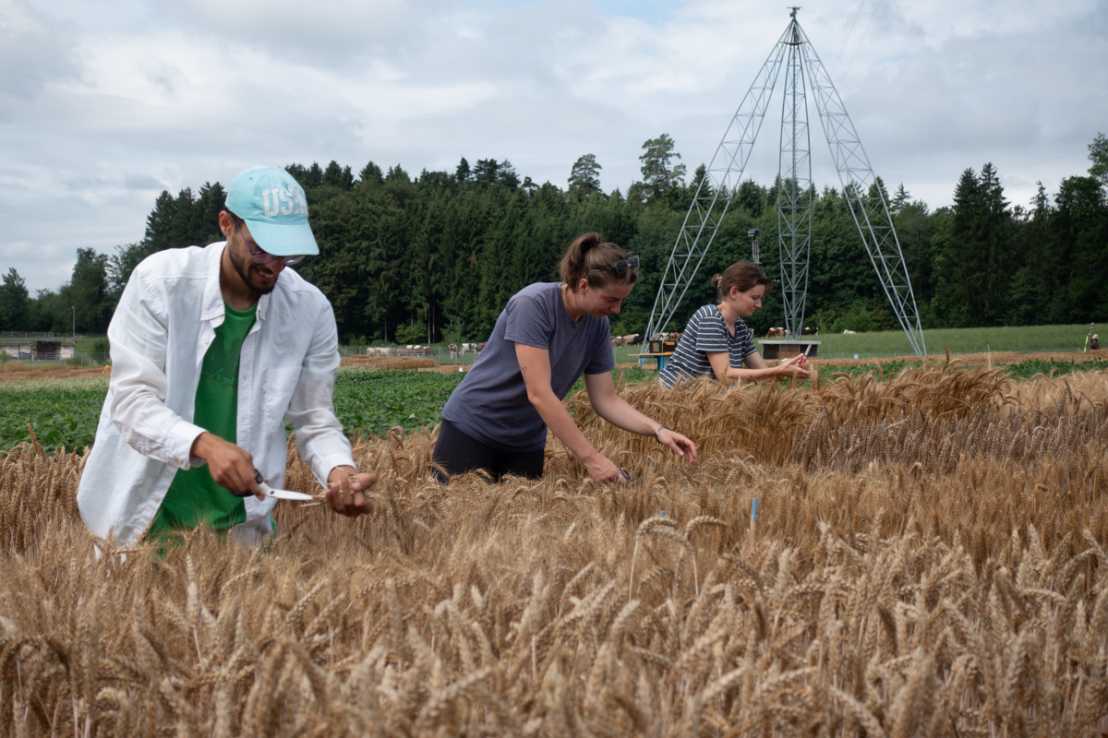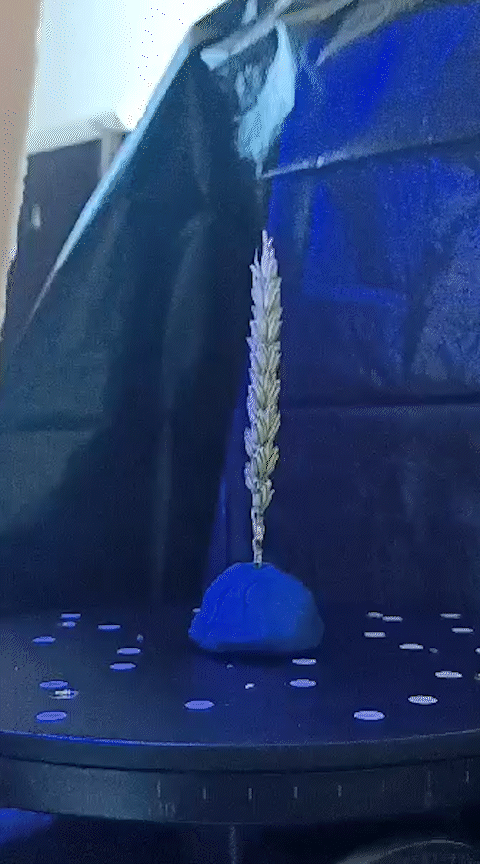ClimBreed summer edition
Image-based phenotyping of wheat during reproductive growth to support crop modelling and genomic prediction (PhD project of Olivia Zumsteg)

Within three work packages we aim to progress beyond the current state-of-the art for traits measured during the reproductive phase of wheat.
1) The temperature-response modeling during the stem elongation phase will be combined with additional covariate with a particular focus on change in soil water content and vapor pressure deficit recorded by the in-field sensor network.
2) Heading time will be assessed based on spike-count dynamics.
3) A method to quantify the overall spike volume as proxy for the total spike dry weight at anthesis will be developed. This new volume trait, termed “fruiting capacity”, will be used to quantify the fruiting efficiency. The efficiency to maintain a high number of fertile florets is often negatively affected by heat during the flowering phase.

The above-mentioned trait assembly allows to tackle the most important traits driving the reduction of wheat yields due to climate-change in Europe: drought during stem elongation and heat during flowering and grain filling. We will use the response to drying soil during stem elongation and its effect on fruiting capacity to quantify the genotype sensitivity to drought and the reduction of fruiting efficiency to quantify the effect of heat. Heading dates will be used to develop a genotype-specific heat index around flowering.

Contact
Professur für Kulturpflanzenwiss.
Universitätstrasse 2
8092
Zürich
Switzerland